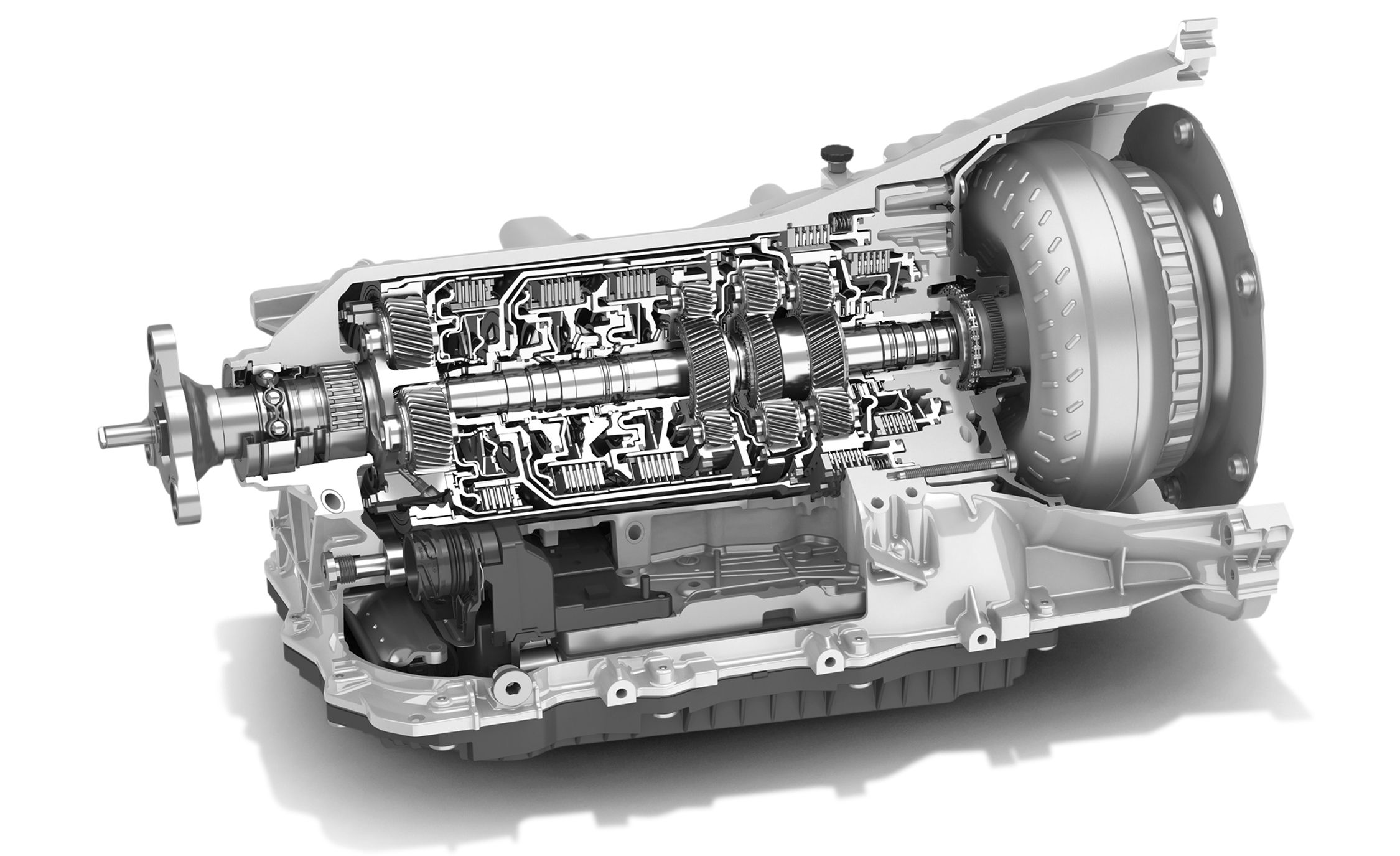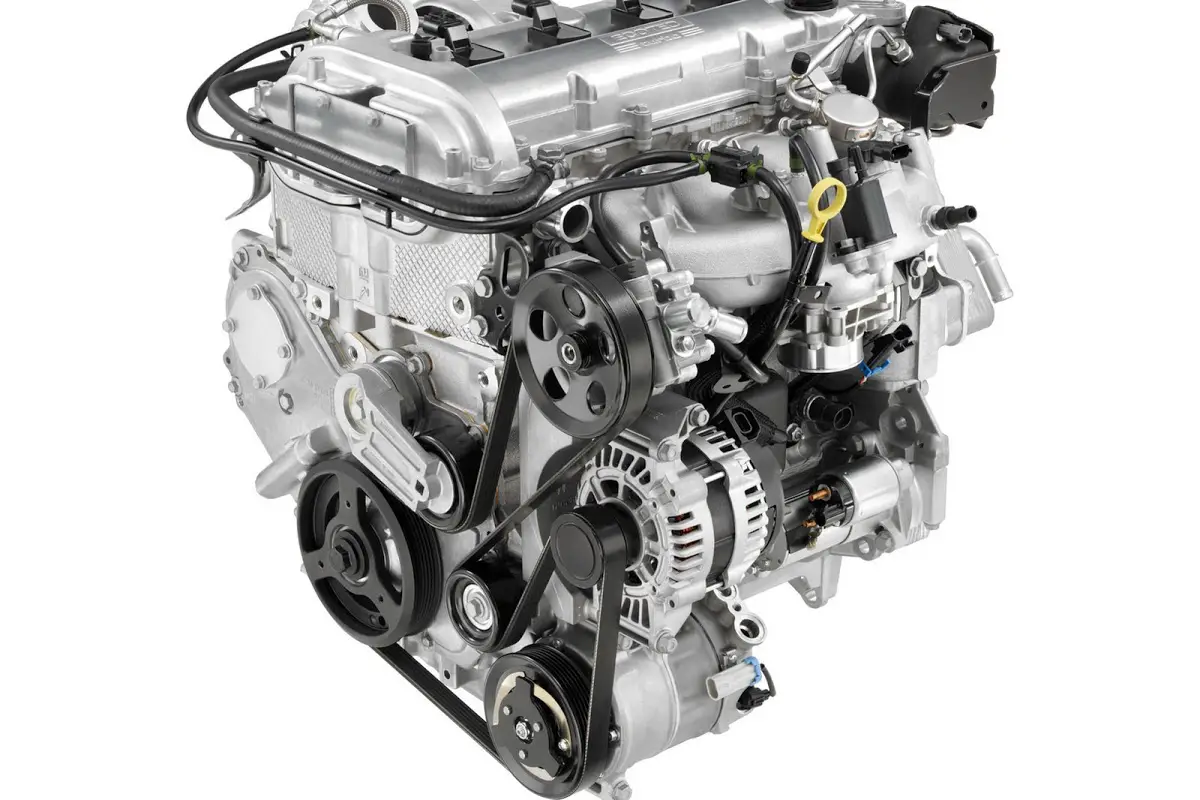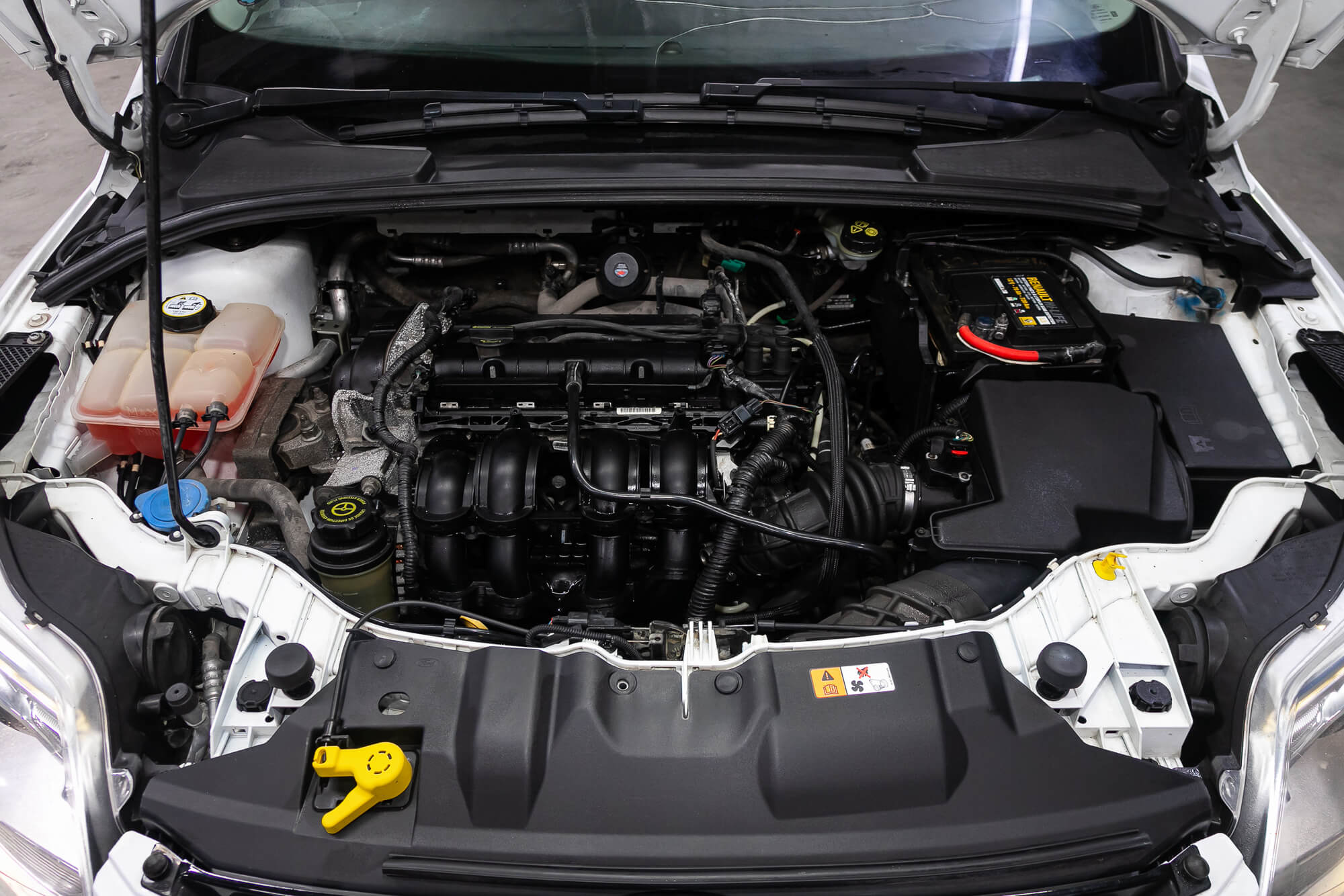The ZF 8-speed transmission is one of the most advanced and widely used automatic transmissions in the world.
It is found in many vehicles from different manufacturers, such as BMW, Audi, Jaguar, Land Rover, Dodge, Jeep, and more.
However, this transmission is not without its flaws.
Many users have reported various problems with the ZF 8-speed transmission, such as hard shifts, delayed engagement, fluid leaks, mechatronic failures, and more.
These problems can affect the performance, reliability, and safety of your vehicle.
In this article, we will provide you with a comprehensive guide to the ZF 8-speed transmission problems, their causes, symptoms, and solutions.
We will also give you some tips on how to maintain and upgrade your ZF 8-speed transmission to prevent or minimize these problems.
What Are The Most Common Problems With ZF 8-Speed Transmission?
While the ZF 8-speed transmission is generally considered a reliable unit, there are a few common problems that can occur:
Shudder or vibration during gear changes
This symptom often indicates an imbalance or irregularity in the transmission’s operation. It can stem from various sources such as worn clutch plates, which may fail to engage smoothly, leading to vibrations during gear shifts.
Additionally, a faulty torque converter can cause similar symptoms, as it fails to transmit power efficiently between the engine and transmission. Low transmission fluid levels exacerbate these issues by reducing hydraulic pressure and lubrication, further contributing to shuddering or vibrations.
Slipping or hesitation during acceleration
This problem typically arises from a compromised clutch system or issues within the valve body. A worn clutch may struggle to maintain proper engagement, resulting in slipping and reduced power transfer to the wheels. Similarly, problems within the valve body, which regulates fluid flow and gear changes, can lead to hesitation or delays in shifting, particularly during acceleration.
Delayed engagement or harsh shifting
Delays in gear engagement or abrupt, harsh shifts indicate underlying issues with transmission control or hydraulic functionality. A malfunctioning Transmission Control Module (TCM) can disrupt the transmission’s ability to interpret driver inputs and adjust shift patterns accordingly, leading to delayed or erratic gear changes. Hydraulic problems, such as fluid leaks or pressure irregularities, can also manifest as harsh shifting or delayed engagement.
Leaking
Transmission fluid leaks are a common concern and can originate from various points within the transmission system. Leaks may occur from the transmission pan due to deteriorated gaskets or improper sealing. Additionally, worn torque converter seals or damaged hoses and connections can also contribute to fluid leaks, posing a risk of reduced lubrication and potential damage to internal components if left unaddressed.
Complete transmission failure
While less frequent, total transmission failure can occur due to a culmination of factors, including prolonged wear and tear, overheating, or inherent manufacturing defects. Severe wear on internal components, such as clutch packs or gears, can compromise the transmission’s integrity, eventually leading to catastrophic failure.
Overheating, often exacerbated by towing heavy loads or driving in extreme conditions, can accelerate wear and contribute to premature failure. In rare cases, manufacturing defects or material weaknesses may manifest over time, resulting in unexpected transmission failures.
Also Read: M271 Engine Problems: Should You Be Concerned!
What Causes ZF 8-Speed Transmission Problems?
Several factors can contribute to problems with ZF 8-speed transmissions, ranging from internal wear and tear to external influences and even potential design flaws:
Internal wear and tear
- Worn clutch plates: These are essential for smooth gear changes, and their gradual wear over time can lead to shuddering, slipping, or hesitation during gear shifts.
- Faulty torque converter: Issues with the torque converter, which transmits engine power to the transmission, can manifest as shuddering, vibration, or even complete transmission failure.
- Hydraulic issues: Problems within the transmission’s hydraulic system, involving components like the valve body, can cause delayed engagement, harsh shifting, or slipping.
External factors
- Low transmission fluid: Insufficient or degraded transmission fluid can lead to overheating, lubrication issues, and ultimately, various transmission malfunctions.
- Modified driving habits: Practices like frequent towing, aggressive acceleration, or launching the vehicle from a stop can put excessive stress on the transmission, accelerating wear and tear.
- Manufacturing defects: Early models of the ZF 8-speed transmission have reported design flaws causing issues specifically in 7th and 8th gears.
What Are The Symptoms Of ZF 8-Speed Transmission Problems?
Several symptoms can indicate potential problems with your ZF 8-speed transmission. Here are some key ones to watch out for:
Shifting issues
- Shuddering or vibration during gear changes: This can feel like a trembling sensation when the transmission shifts between gears.
- Slipping or hesitation during acceleration: The engine revs increase without a corresponding increase in speed, indicating the transmission is struggling to engage the proper gear.
- Delayed engagement or harsh shifting: The transmission takes longer than usual to shift gears, or the shifts feel abrupt and jerky.
Other potential signs
- Unusual noises: Grinding, whining, or clunking noises coming from the transmission area can signal internal issues.
- Leaking: Transmission fluid leaks can occur from the pan, connections, or seals, often leaving red stains underneath the vehicle.
- Warning lights: Check engine lights or other transmission-specific warning lights on the dashboard that can indicate detected problems.
How To Fix ZF 8-Speed Transmission Problems?
Due to the complexity of transmissions and the potential safety risks involved, it is strongly advised against attempting to fix ZF 8-speed transmission problems yourself. These transmissions require specialized knowledge, tools, and experience to diagnose and repair correctly.
Here’s the recommended course of action:
- Seek professional help: Take your vehicle to a qualified mechanic or transmission specialist with experience working on ZF 8-speed transmissions.
- Diagnosis: The mechanic will perform a thorough diagnosis to identify the root cause of the problem. This may involve visual inspection, computer diagnostics, and potentially test drives.
- Repair options: Based on the diagnosis, the mechanic will recommend the appropriate repair solution. This could involve:
- Minor repairs: Replacing worn components like clutch plates or solenoids.
- Major repairs: Overhauling the transmission, which is a complex and expensive procedure.
- Fluid change and service: If the issue stems from low or degraded fluid, a simple fluid change and filter replacement might suffice.
Important: Boosting Performance & Reliability: A Guide To 6L90 Transmission Upgrades!
Are ZF 8-speed transmissions reliable?
Many users have reported that their ZF 8-speed transmissions are sturdy and reliable, and have no major issues even after high mileage or heavy towing.
Some of the factors that contribute to the reliability of the ZF 8-speed transmission are its versatile modular design, its broad gear ratio, its efficient hydraulic impulse oil storage system, and its lifetime fluid.
How long does a ZF 8-speed last?
The lifespan of a ZF 8-speed transmission can vary significantly depending on several factors, making it difficult to give a definitive answer. However, here’s a general guideline:
Under ideal conditions and with proper maintenance
- Expected lifespan: You can expect a ZF 8-speed transmission to last between 150,000 and 200,000 miles with proper maintenance. Some sources even mention reaching 300,000 miles with exceptional care.
- Proper Maintenance: This includes regular transmission fluid changes and filter replacements following the manufacturer’s recommended intervals. Typically, this is around every 70,000 to 80,000 miles, but it can vary depending on the specific vehicle and driving conditions.
Factors affecting lifespan
- Driving habits: Aggressive driving, frequent towing, or launching the vehicle from a stop can significantly shorten the lifespan of the transmission by putting excessive stress on its components.
- Maintenance practices: Neglecting regular fluid changes and allowing the transmission to run low on or with degraded fluid accelerates wear and tear, leading to premature failure.
- External factors: Extreme weather conditions, like constant exposure to very high or low temperatures, can also contribute to a shortened lifespan.
How much power can the ZF 8-speed handle?

The ZF 8-speed transmission can handle different amounts of power depending on the model and the application. The first generation 8HP45 has a torque limit of 450 Nm (332 lb-ft), while the second and third generation 8HP50 and 8HP51 have a torque limit of 500 Nm (369 lb-ft).
However, some vehicles may have higher or lower torque limits depending on the engine, the drivetrain, and the software calibration. For example, the BMW M5 F90 uses a modified version of the 8HP75, which can handle up to 750 Nm (553 lb-ft) of torque.
The ZF 8-speed transmission can also be paired with an electric motor, which can provide additional power and torque. The plug-in hybrid model of the new generation 8-speed transmission has an electric motor with a maximum power of 160 kW (215 hp) and a continuous output of 80 kW (107 hp).
Which Cars Use ZF8 Transmission?
The ZF 8-speed automatic transmission, known for its smooth shifting and wide range of applications, is found in a wide variety of cars from many different manufacturers. Here are some examples:
-
Luxury Cars
-
-
- Audi S4, S5, S6, S7, S8
- BMW 3 Series, 5 Series, 7 Series, 8 Series
- Jaguar F-Type, XE, XF, XJ
- Land Rover Range Rover, Range Rover Sport, Range Rover Velar
- Mercedes-Benz C-Class, E-Class, S-Class
-
-
Performance Cars
-
-
- Alfa Romeo Giulia Quadrifoglio
- Dodge Charger SRT Hellcat
- Jeep Grand Cherokee Trackhawk
- Nissan GT-R
-
-
Pickups and SUVs
-
- Chevrolet Colorado, Tahoe, Suburban
- Chrysler 300
- Ram 1500, 2500, 3500
What Is The Benefit Of 8 Speed Transmission?
- Enhanced fuel economy
- Smoother and more responsive driving experience
- Greater flexibility for different driving styles
- Reduced environmental impact
- Enhanced towing and uphill performance
Is ZF better than DSG?
Deciding whether ZF or DSG is “better” depends on your priorities and the specific application. Both are excellent transmissions with unique strengths and weaknesses:
ZF
- Strengths
- Smoothness: Renowned for exceptionally smooth and comfortable shifting, offering a luxurious driving experience.
- Fuel efficiency: Generally considered more fuel-efficient due to its design and operation.
- Durability: Known for robust construction and reliable performance, often lasting well over 150,000 miles with proper care.
- Weaknesses
- Slower shifts: While still quick, shifts might feel slightly slower than DSG, especially noticeable in performance-oriented driving.
- Cost: Can be slightly more expensive due to its complex design and manufacturing process.
DSG
- Strengths
- Speed: Offers exceptionally fast and precise gear changes, ideal for performance-oriented driving and sporty handling.
- Compactness: Its design is generally more compact and lightweight, potentially contributing to better weight distribution and handling in some vehicles.
- Engagement: Provides a more direct and connected driving feel due to its dual-clutch design.
- Weaknesses
- Smoothness: While improvements have been made, DSG shifts might feel slightly less smooth than ZF at low speeds or in stop-and-go traffic.
- Fuel efficiency: In some cases, DSGs might be slightly less fuel-efficient than ZFs, especially in city driving.
- Potential maintenance costs: DSGs can be more complex to service, potentially leading to higher maintenance costs in the long run.
Related Post: GM 6L80 Transmission Problems: A Comprehensive Guide!
ZF 8-speed Transmission Upgrade
Upgrading to a ZF 8-speed transmission can be a tempting option for car enthusiasts looking to enhance their vehicle’s performance and driving experience. However, it’s important to carefully consider the various factors involved before making this decision.
Here are some key points to consider
-
Increased Performance
The most significant advantage of a ZF 8-speed transmission upgrade is the potential for improved performance. With its wider range of gears, the transmission allows the engine to operate closer to its optimal power band, resulting in quicker acceleration, smoother gear changes, and potentially better fuel economy.
-
Compatibility
Upgrading to a ZF 8-speed transmission is not a straightforward process, and it’s essential to ensure compatibility with your specific vehicle. This often involves extensive modifications to the engine, drivetrain, and control systems, making it a complex and expensive undertaking.
-
Cost
The cost of a ZF 8-speed transmission upgrade can be significant, easily reaching into the thousands of dollars depending on the vehicle, parts required, and labor involved. It’s crucial to factor in the total cost, including parts, labor, and potential modifications, before making a decision.
-
Availability
Finding a qualified mechanic or shop experienced in performing ZF 8-speed transmission upgrades can be challenging. It’s essential to choose a reputable shop with the expertise and experience necessary to ensure the upgrade is done correctly and safely.
-
Warranty
Upgrading the transmission may void your vehicle’s original warranty, leaving you responsible for any future repairs or issues related to the transmission. Carefully review your warranty terms and conditions before proceeding.
What Is The ZF 8 Speed Transmission Price?
Unfortunately, there isn’t a single, universally applicable price for a ZF 8-speed transmission. The cost of acquiring and installing one depends on several factors, making it difficult to provide a definitive answer. Here’s why:
-
New vs. Used
The price significantly varies depending on whether you’re looking for a brand new or a used ZF 8-speed transmission. New transmissions directly from ZF are likely to be very expensive, potentially exceeding $10,000 or even more. Used transmissions, found through salvage yards or online marketplaces, can be significantly cheaper, ranging from a few thousand dollars to around $5,000, but they may come with varying levels of wear and tear and require additional assessment and potential rebuild costs.
-
Source and Location
The price can also vary depending on where you source the transmission. Purchasing directly from a dealership or authorized distributor might be more expensive compared to independent sellers or online platforms like eBay. Additionally, geographical location can influence the price due to factors like shipping costs and local market variations.
-
Vehicle Compatibility
ZF offers various models within the 8-speed family, each tailored to specific engine and drivetrain configurations. The specific model you need for your vehicle will affect the price, as different models might have varying production costs and availability.
-
Installation and Modifications
Acquiring the transmission itself is just a part of the story. Upgrading to a ZF 8-speed typically involves extensive modifications to your vehicle’s drivetrain, engine control unit, and potentially other components to ensure compatibility and proper functioning. The cost of these modifications, including labor charges, can vary significantly depending on the specific vehicle, the complexity of the work required, and the mechanic’s labor rates.
Conclusion
The ZF 8-speed transmission is a widely used and generally reliable automatic transmission, but it is not without its potential problems.
While common issues include shuddering, slipping, and harsh shifting, proper maintenance and avoiding aggressive driving habits can significantly extend its lifespan.
Upgrading to a ZF 8-speed can be tempting for performance gains, but it’s a complex and expensive endeavor requiring careful consideration of various factors like compatibility, cost, and warranty implications.




